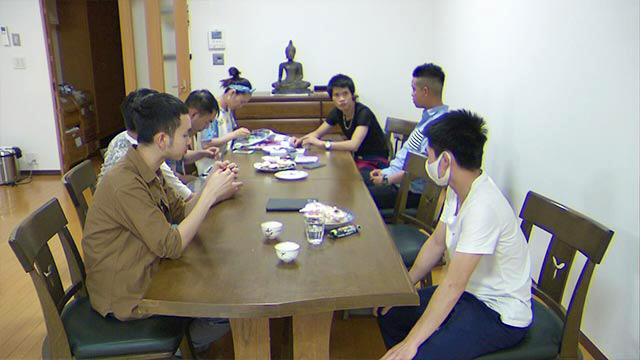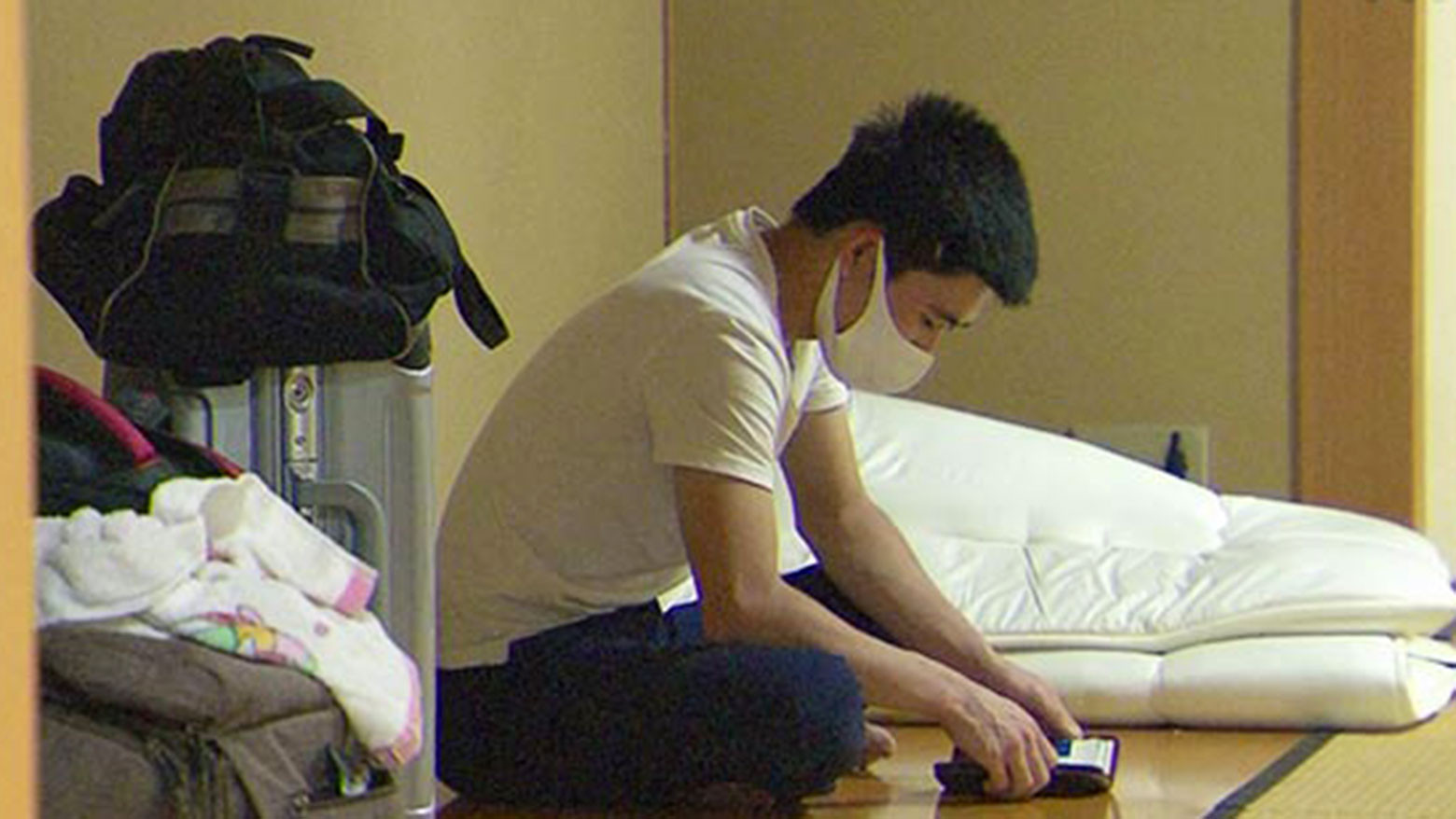The 25-year-old Thi was working as a technical intern at a construction company in Shizuoka Prefecture when the coronavirus pandemic began. In March, his company asked him to stay home, and in April the organization that arranged his internship asked him to pack his bags and head to Tokyo, saying they had secured a place to live there.
When he reached the capital, there was nobody to meet him. He realized he was now unemployed, with nowhere to stay, in a city he didn't know.
Thi booked into hotels at first, but his money soon ran out and he ended up sleeping on the floor of a station in the suburbs of Tokyo.
Then he heard about the Japan Vietnam Mutual Support Association, a non-profit organization that supports Vietnamese people in Japan. He’s now staying at a facility run by them.
“Although I thought that life would be difficult in Japan, I never thought it would be this hard,” he says.

A roof over his head
The organizations that arrange foreign technical interns in Japan need government approval and are responsible for finding new jobs for interns that are laid off. They also have to help get the interns home if they wish to return.
But the coronavirus has changed everything. The Immigration Services Agency says 3,627 technical interns have been laid off because of the economic impact of the coronavirus and the placement organizations say they are overwhelmed.
The staff at the organization responsible for Thi says they had no intention of abandoning him. They told NHK they simply didn’t know about his desperate situation until the NPO contacted them.
The Japan Vietnam Mutual Support Association says it has taken in about 30 other trainees with nowhere to go.
"Many foreign trainees are finding it increasingly hard to survive each day," says Yoshimizu Jiho, the head of the association. “We have been receiving desperate calls from them.”
Government has duty to help
Saito Yoshihisa, an associate professor at Kobe University and an expert on issues related to foreign laborers in Japan, says nobody anticipated an event like the pandemic when they created the technical intern program, and he believes the government has an obligation to help.
“They shouldn’t just leave private organizations to deal with this situation,” he says. “The government has to support technical interns, including by ensuring they have shelter until they return home.”
The organization that placed Thi says they’ve agreed to help him get home. That will take time, though: there are few flights now to Vietnam from Japan and long waiting lists. Thi has already spent six months in limbo, and when he finally leaves, all he will have to show for it is a debt of around 1.3 million yen ($12,400) to show for his time in Japan.

